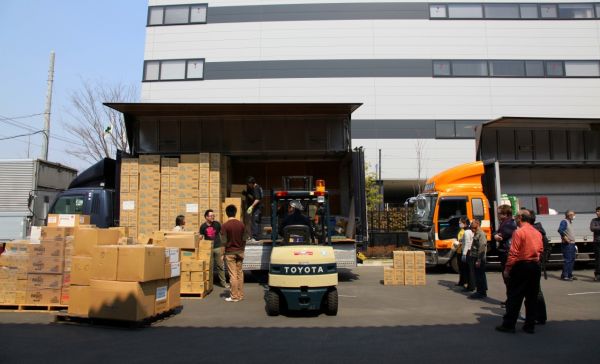
by Akiko Mera, Executive Director, Oxfam Japan
April marks a time for new beginnings in Japan: new school year, new jobs and starting new lives. But for many Japanese this year, it has become not only a new beginning, but a beginning with many unknown implications and overshadowed by uncertainties.
Construction for temporary housing is underway and some schools have begun classes – despite simultaneously serving as evacuation centers. Running water and electricity is back in some places – but many still live without privacy, warmth or comfort. One month after the earthquake the scale of the disaster is still unknown.
What do we know?
Out of the 13,000 people who lost their lives, we have age data for 7,935, of which 55.4% were over the age of 65. And in a region which faces aging and depopulation, we know that there are a number of people still missing.
During such a prolonged emergency phase, many people’s tolerance has been stretched beyond its limits. However, organisations are working in partnership both locally and globally – in coordination with the Prefectural Social Welfare Councils as well as local (city/ward/town/village) social welfare councils together with Disaster Volunteer Centers (DVCs).
One month after the biggest recorded earthquake in Japan, followed by the tsunami and a nuclear power plant failure, we also seem to be fighting yet another phenomenon: Jishuku. Jishuku means self-restraint or self-containment and has led many people to cancel their ordinary activities. No events, no socialising. Instead, people are rushing to go home so that they will not be stranded on the trains or at their work place.
In the midst of all these recent events, Oxfam Japan has decided to stay in Tokyo and work through our partners. Even a thorough contingency plan will have gaps – that’s why we have identified those that will not receive sufficient assistance during the relief period: women, mothers, non-Japanese speaking people and the disabled.
To date, we have delivered non-food items such as diapers, sanitary goods, shampoo and soap to mothers and infants, plus provided accurate information to non-Japanese speakers through websites and radio broadcasting. Oxfam makes sure gender is taken into consideration in our relief and reconstruction work, so we are now in the process of preparing further assistance in the form of counselling for those that require it, establishing a help-line for women who are the victims of violence and setting up peer counselling schemes.
View photo gallery
[nggallery id=11]
One month on, we have certainly made progress, but we have a long way ahead of us. It would not be possible without the work of our partners and Oxfam offices worldwide – and the generous donations from you, our supporters around the world.
Read more about our response to the Japan earthquake and tsunami